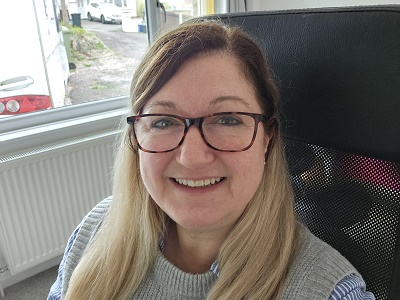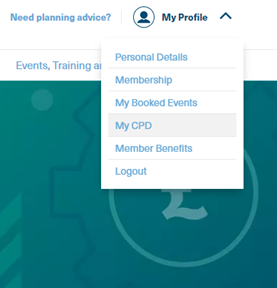Kimmie Walker is the Professional Development Officer at the RTPI
 Being a Chartered Member as well as working for the RTPI, this is an opportunity to share my thoughts on the benefits of Continuing Professional Development and to answer some frequently asked questions. As members of the RTPI, you should maintain, improve, and broaden your knowledge and skills through CPD. This commitment to your knowledge, skills and experience is what sets you apart from other planners who are not members of the RTPI.
Being a Chartered Member as well as working for the RTPI, this is an opportunity to share my thoughts on the benefits of Continuing Professional Development and to answer some frequently asked questions. As members of the RTPI, you should maintain, improve, and broaden your knowledge and skills through CPD. This commitment to your knowledge, skills and experience is what sets you apart from other planners who are not members of the RTPI.
CPD is a:
- A way to learn every day in a constantly changing world.
- A commitment that demonstrates to employers and colleagues your motivation to learn and develop.
- A way to enhance your self-confidence.
- An enabler to help you progress in your career.
- A way to instil confidence in colleagues and customers in your professional abilities and expertise.
The more you learn, the more you know and the better you can carry out your duties.
The public and employers also have expectations that as a professional you are updating yourself on hot topics, as well as your personal development for example, problem solving, presentation skills and communication skills.
Planning your CPD
You can plan your specific CPD needs following the preparation of your Professional Development Plan (PDP). You should:
- Update your PDP at least once a year.
- Consider your Strengths, Weaknesses, Opportunities and Threats.
- Think about your short and long-term aims.
- Use this information to shape your personal Goals and Objectives.
The Action Plan to deliver those Goals and Objectives steers your learning and development.
If you’d like to know more about writing a PDP why not try this free course on RTPI Learn.
How much CPD should I do?
 You need to have undertaken 50 hours of CPD over a 2-year period. That’s only 30 minutes each week of the year. This isn’t an onerous requirement and is equivalent to brushing your teeth twice a day for a week – so long as you are doing it properly!
You need to have undertaken 50 hours of CPD over a 2-year period. That’s only 30 minutes each week of the year. This isn’t an onerous requirement and is equivalent to brushing your teeth twice a day for a week – so long as you are doing it properly!
For ease, log your CPD on your profile page.
What is considered CPD?
There are many learning and development channels:
- In person - attending events, conferences, and seminars.
- Online learning - webinars, conferences, RTPI Learn, RTPI masterclasses, blogs, YouTube channels.
- Reading - articles, appeal decisions, research, books, and papers.
- Volunteering – there are many opportunities to volunteer your time with the RTPI for example, become an Assessment of Professional Competence Assessor, or a Member on the Partnership and Accreditation Panel (PAP).
- Mentoring – this is a vital role for helping colleagues to grow and develop and can be very rewarding for both parties involved.
Many of these sources of CPD are free.
Reflective Practice
Reflective practice following the completion of CPD is key because it allows you to recognise and implement your new knowledge. You can also consider how it will result in behavioural changes or change in practice and identify any further gaps in your knowledge and experience.
For example, having attended the RTPI’s “What does ‘good design’ mean to a planner” webinar in July 2023, my reflections were that:
“This event provided me with a good explanation of the purpose of the National Design Guide, which has been introduced but on which I have never had any training or explanation. It made me realise that I should be using this document much more regularly and that I should implement it in all applications that I am submitting. I also need to consider design as part of the climate emergency response in applications, including design, orientation, typologies of housing unit, efficient use of land, and who is going to live there”.
The RTPI’s annual CPD monitoring of randomly selected members’ CPD logs and PDPs will be starting in April, so if you have any questions on PDPs and CPD, or need any clarification, please contact Kimmie at [email protected]
CPD events
Take a look at our upcoming CPD events on our calendar


